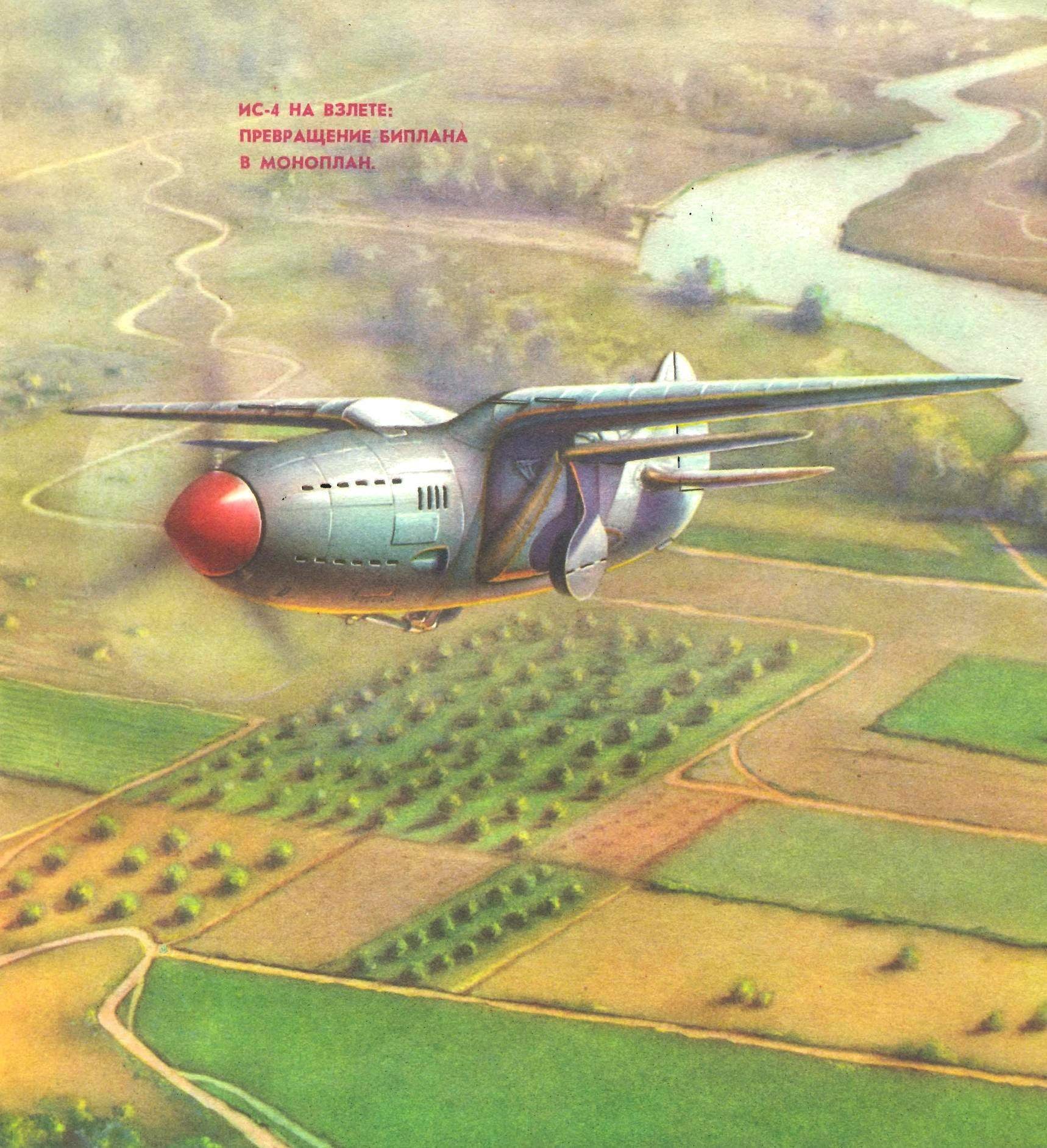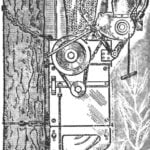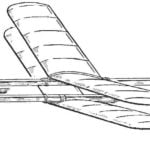 …He is the pilot to the bone. Telling, mechanically gestures: hands discharged turns, barrel rolls, combat turns. He knows the subtlest of the flight habits of many domestic and foreign aircraft — from the English “avrushka” to jet Il-28. But first and foremost he’s an engineer. And each episode of his eventful flight biographies “worked” on the development of a future designer. Although no exaggeration to say that the first steps in aviation, a graduate of the Bauman pilot athlete osoaviahima Vladimir Shevchenko, like his fellow flying club and Institute Sergei Korolev, once realized and formulated his design credo.
…He is the pilot to the bone. Telling, mechanically gestures: hands discharged turns, barrel rolls, combat turns. He knows the subtlest of the flight habits of many domestic and foreign aircraft — from the English “avrushka” to jet Il-28. But first and foremost he’s an engineer. And each episode of his eventful flight biographies “worked” on the development of a future designer. Although no exaggeration to say that the first steps in aviation, a graduate of the Bauman pilot athlete osoaviahima Vladimir Shevchenko, like his fellow flying club and Institute Sergei Korolev, once realized and formulated his design credo.
Not knowing the true value of his first job in the air force research Institute, the young pilot Shevchenko conducts studies of the impact of the bomb load on the flight characteristics of a fighter. The plane suspended from the fuselage bomb behaves not as unproductive as a “hawk”. And how strikingly varied the behavior of the machine after a reset of the load over the target. It seemed as if one pilot flying two different aircraft…
Already at the Zenith of fame as one of the best pilots of the country he created a few original winged cars. And when, finally, conducts tests And 4 removed from the lower wing, with an absolute clear conscious aviation designer. The impetus for the adoption of the decision on such a drastic upturn in fortunes was one observation with the same engine without any changes in design, having lost the lower wing, old And-4 though younger, became faster. Only here to run up before takeoff was longer. Increased landing speed: the speed in the sky. So is it possible to combine in one machine the best properties of volatile, agile biplanes and high-speed monoplanes? To this question and tried to answer aircraft Shevchenko.

Monopoply — plane with two wings during takeoff and landing, and one under basic conditions — that is, the idea Shevchenko, could help the aviation of those days. Only how to get rid of this unwanted, unnecessary wing — not forever, of course, but the rest of the flight, when the machine starts to approach and you will need to make up for the lack of the lift force by increasing the bearing area?
Retractable wing? This conclusion suggests itself. But the wing — a very important and complex element of design, experiencing a huge load! Shortly before the flights of the upgraded And-4 on the planes were retractable landing gear is forced the designers to solve many difficult technical problems. It does not cause cleaning wing unwanted changes in the aerodynamics of the car how to behave in the joints of consoles, won’t the wing a source of destructive vibrations? To answer these questions, could the calculations, a purge in a wind tunnel, finally, flight tests of experimental aircraft.
In November 1938, at the academic Council of the air force Institute Shevchenko reports the conceptual design of such a machine. At the beginning of 1939 shows a competent Commission a full-size layout, and in the end adopts the Assembly line built model. Is-1 — the so — called plane- which was discarded in the’ giant wind tunnel. M. V. Keldysh, the future President of the USSR, checking its vibration.
In June 1940, the first monopoply up in the air, and after a month test pilot NII VVS, now honored test pilot of the USSR, Hero of the Soviet Union Georgy Shiyanov is conducting the first cleaning of the wing in flight. Test flew the EC-1 test pilot Stepan Suprun and Alexei Grinchik, which became later in the history of our aircraft as a test pilot of the first jet MiG.
In January 1940 he was ready the second monopoply, the is-2. Ended construction and the third combat fighter, is-4, with a powerful 18-cylinder liquid-cooled engine M-12.
Already test flown mobiplay demonstrated excellent properties. Appeared agility, speed increased, although the engine speed did not change — impact reduction of air resistance. When planting fast cars newly released removed the wings and was flying slow biplanes. The aircraft managed a landing site of minimum dimensions.


1 — IP-1 with the motor M-63, an experimental aircraft with in flight variable wing area (1939), 2 — And-2 with the engine M-88, single-seat fighter with in flight variable wing area (1940) 3 — is-4 with engine AM-37, high-speed maneuverable fighter with in flight variable wing area (1940) 4 — is-14 high-speed maneuverable fighter with in flight variable wing area (1941), 5 And with the motor M-71 high-speed fighter with a change in the flying wing area (draft 1942), 6 fighter-interceptor with variable sweep wing (project 1947).
Leafing through volumes of reports and projects, affects the health of the Shevchenko. In parallel with the twin-boom fighter designed monopoply with tricycle landing gear. Maximum speed of 720 km/h and a landing with additional wing — a total of 107 km/h! Four “live” flying sample project, and eighteen aircraft with retractable wing — the result of the work of the team and its leader from 1938 to 1941.
With the beginning of the great Patriotic war and the design, construction and testing of mobiplanet was suspended indefinitely…
…In the autumn of 1941, major V. V. Shevchenko, the commander of a separate squadron of night fighters of special purpose, makes 122 sorties, protecting Moscow from the enemy bombers.
Years passed… the Successful flights of aircraft with variable geometry wings in the Soviet Union, France and the United States many years after testing mobiplanet Shevchenko confirmed that your ideas are not in vain!
And for the first time this idea was embodied in the slow-moving biplane, more than thirty years ago started from a small airfield.
FIGHTER IS-4
The plane is-4 — cantilever polutoraplan, the top wing of which is made in the form of “Seagull” to improve visibility from the cockpit. As with the previous models of aircraft IP, provided cleaning is in flight the lower wing that turns the vehicle from polyterpene in a monoplane with high wing. The lower wing and landing gear retracted with the lifting mechanism. The center of the lower wing consists of two center section and two consoles. Console wing “breaks” in the hinge, located at the site of attachment of the landing gear. At the same time removed the landing gear, which are included in the center section between the spars and closing flaps.
Chassis tricycle, with a nose strut. The front wheel is located under the engine and retracts back. Main wheel brake.
The fuselage truss. The tail part is covered Villenoy — veneer, front metal shell.
The dural covering of the upper wing, the lower plywood. Console metal top wing, bottom solid wood.
BRIEF TECHNICAL CHARACTERISTICS
Dimensions, m:
length……………………………………………………8,35
wingspan:
top……………………………………………….8,600
lower………………………………………………..7,10
Wing area, m2
top……………………………………………….13,0
lower………………………………………………..7,83
Flight weight, kg……………………………………2900
The maximum speed, km/h:
biplane ……………………………………………….436
monoplane ………………………………………….. 720
landing
(biplane) km/h……………………………………….107
Practical ceiling, m………………………..12 500
Power. engine M-120, HP……………1650
Screw — metal three-bladed, variable pitch; series SSMV-1; diameter of 3.1 m
Weapons: machine gun ShKAS…………………..2
machine gun Berezina, PCs……………………………2
I. ANDREEV



